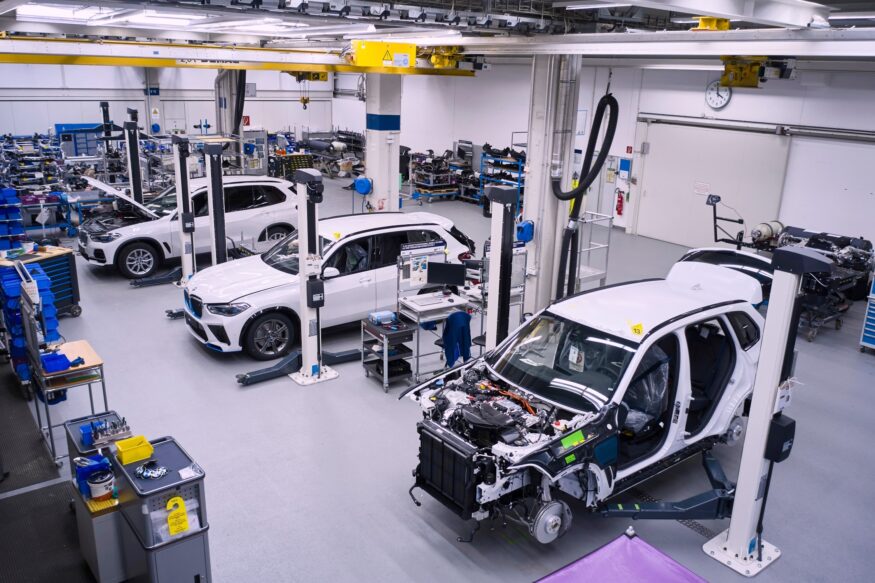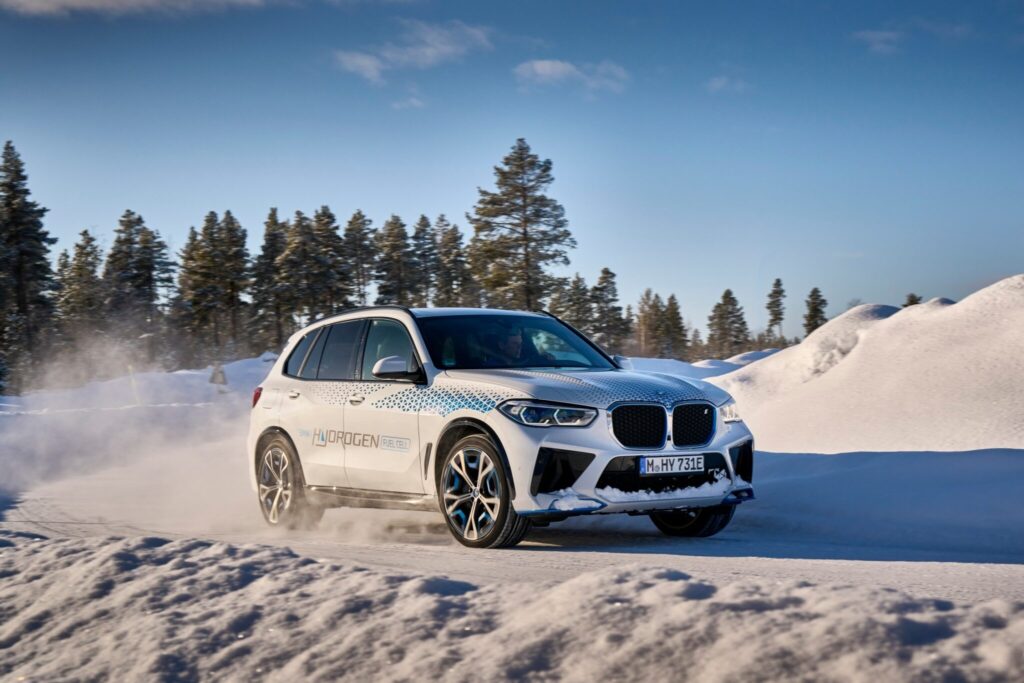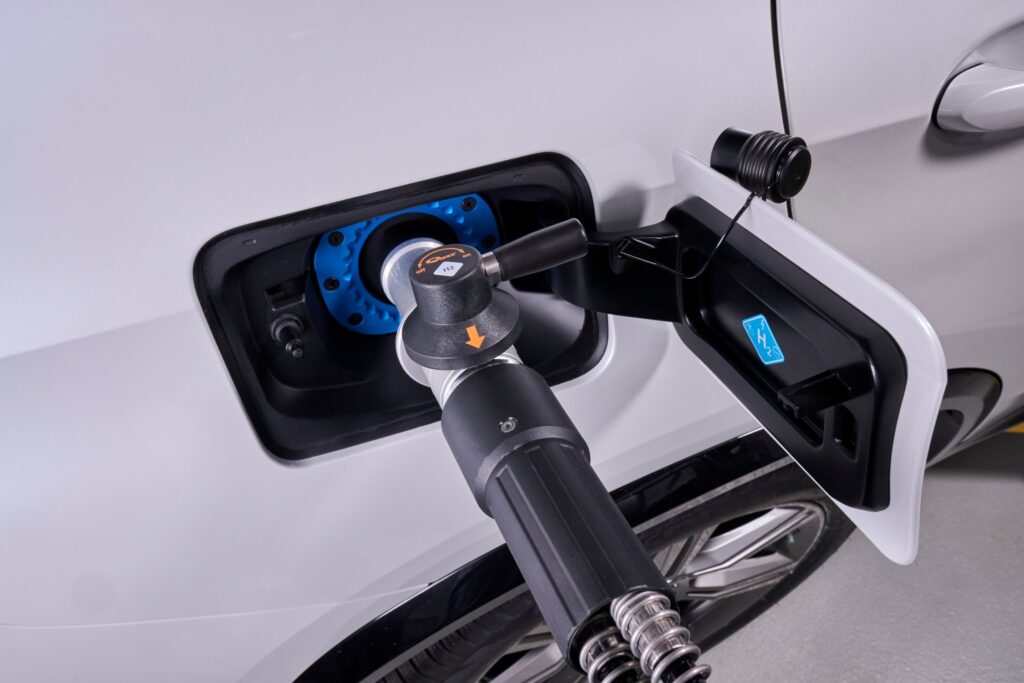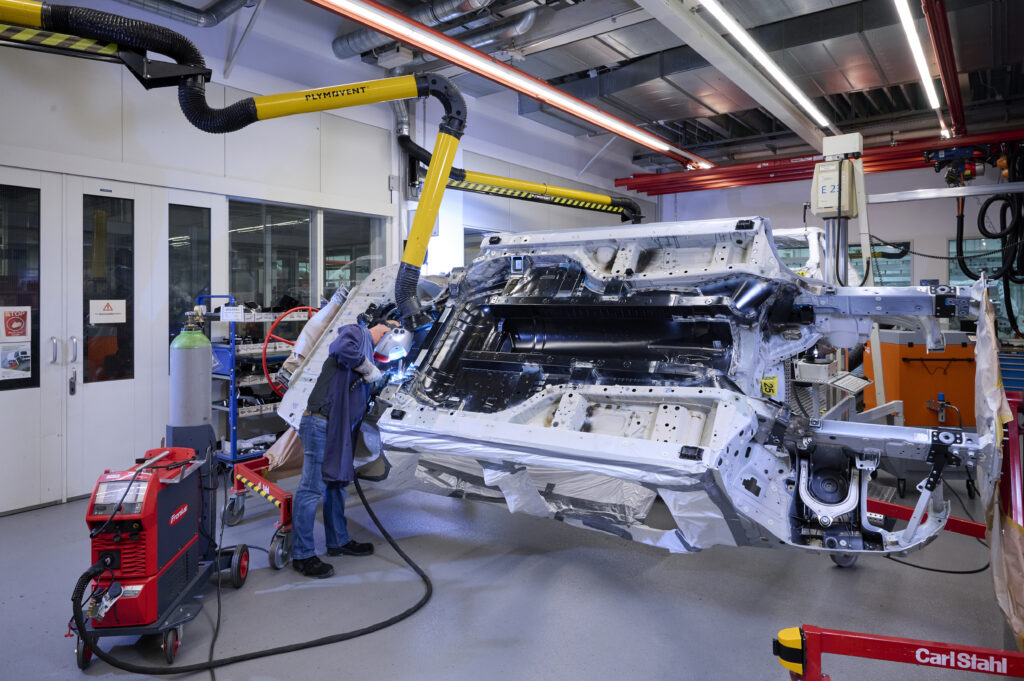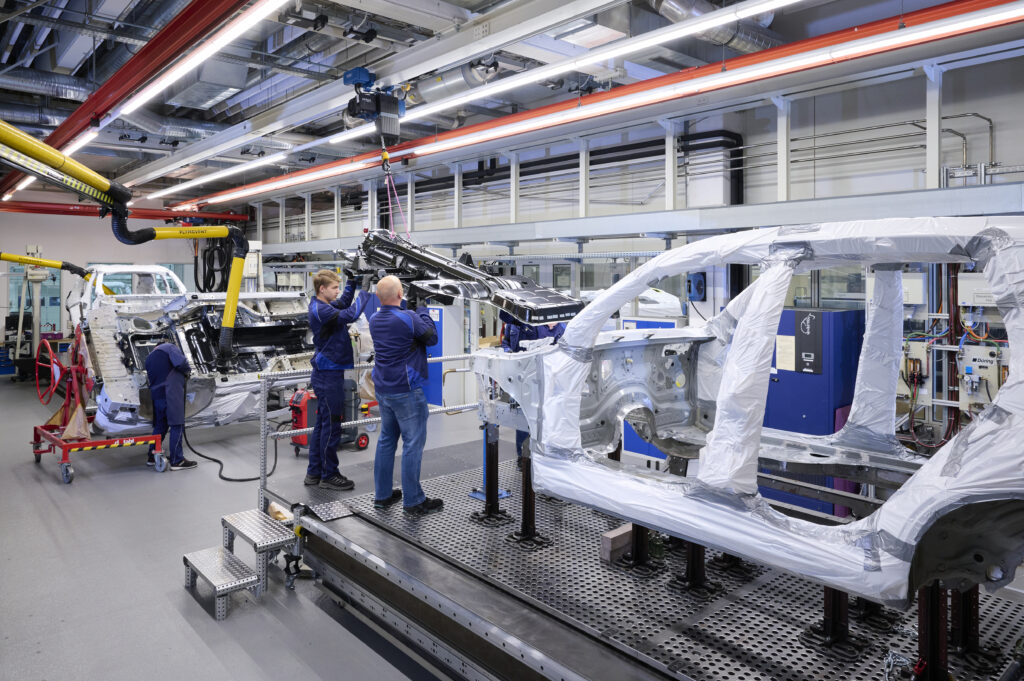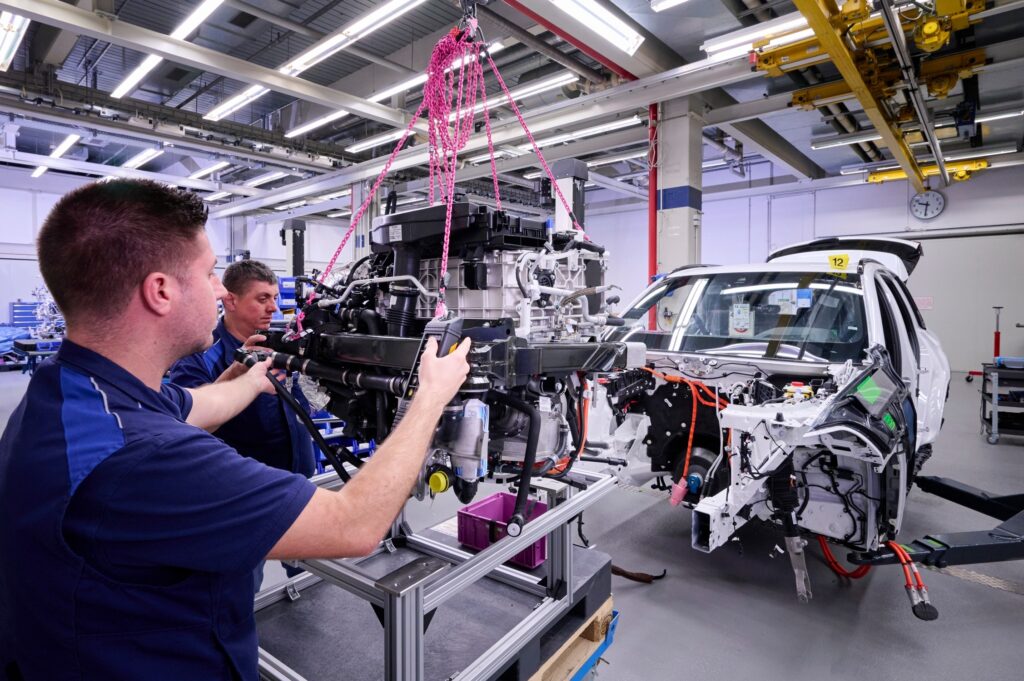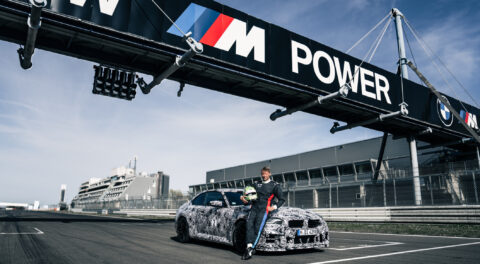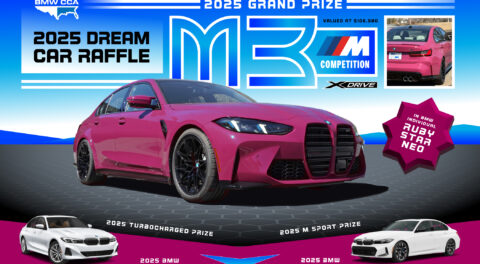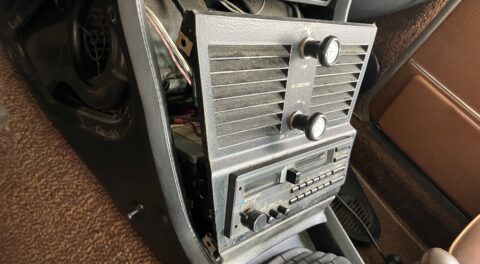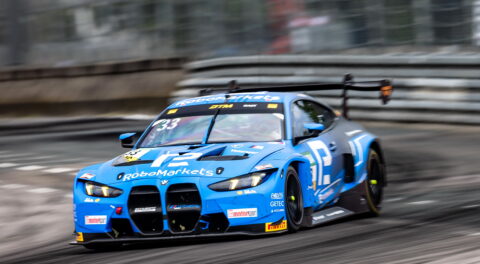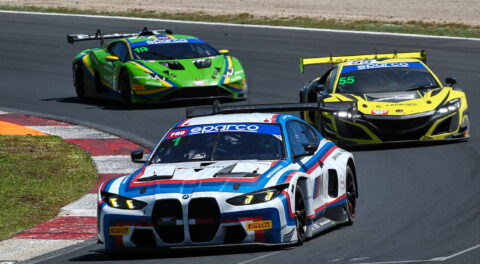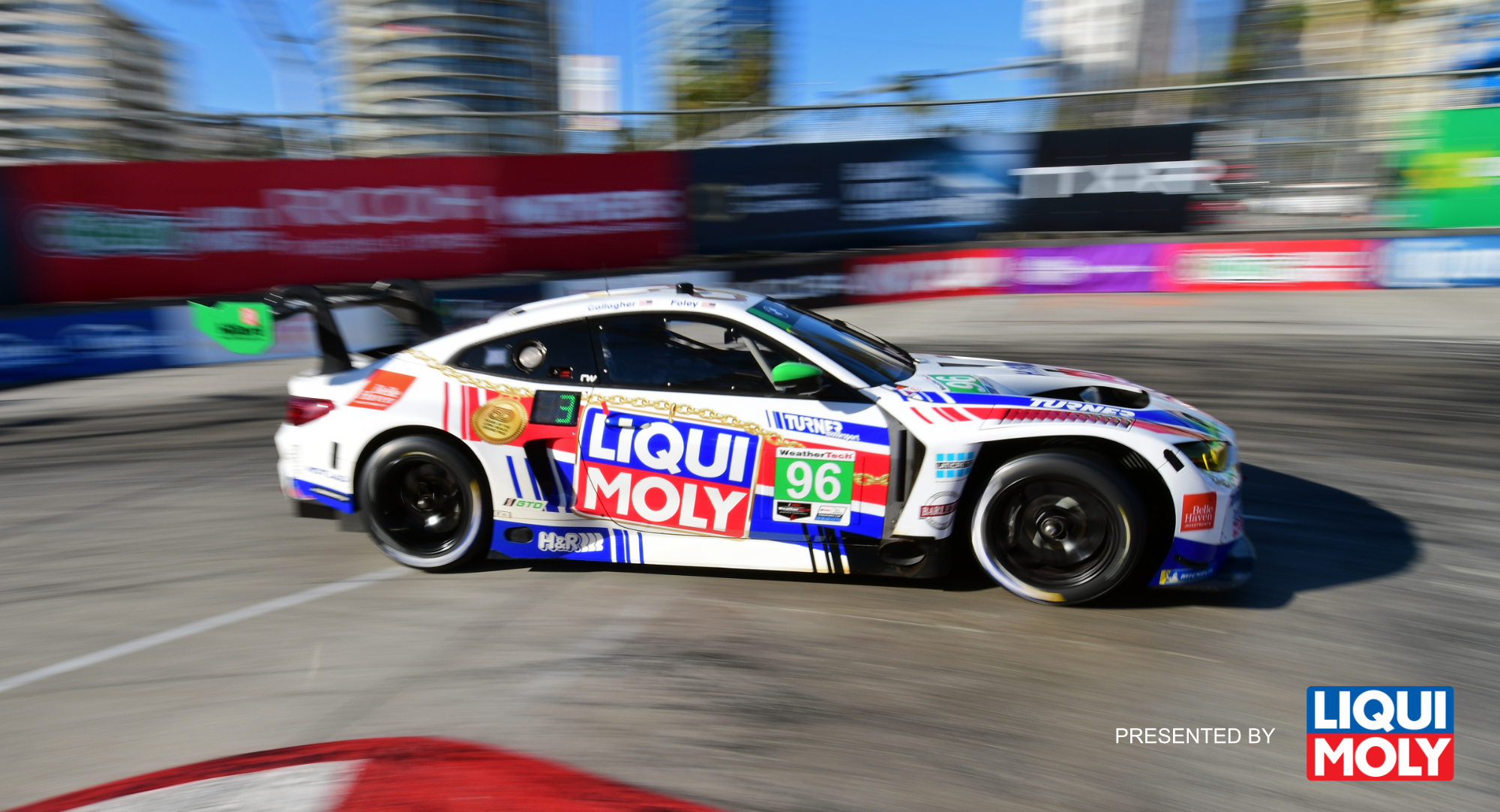A few months ago we took a trip down memory lane, looking back at BMW’s evolution and advancement of hydrogen-powered vehicles. In early December, BMW announced that they would be moving forward with a limited production of its iX5 Hydrogen model, the brand’s first-ever Sports Activity Vehicle (SAV) using hydrogen fuel cell technology. Having just come off an intense testing phase in extreme conditions, BMW plans to use the iX5 Hydrogen vehicles “as a technology demonstrator for locally carbon-free mobility in selected regions from spring 2023.”
Frank Weber, Member of the Board of Management of BMW AG responsible for Development, says, “We are certain that hydrogen is set to gain significantly in importance for individual mobility and therefore consider a mixture of battery and fuel cell electric drive systems to be a sensible approach in the long term. Fuel cells don’t require any critical raw materials such as cobalt, lithium or nickel either, so by investing in this type of drive system we are also strengthening the geopolitical resilience of the BMW Group. Our BMW iX5 Hydrogen test fleet will allow us to gain new and valuable insights, enabling us to present customers with an attractive product range once the hydrogen economy becomes a widespread reality.”
While the BMW iX5 Hydrogen is being built in BMW’s Research and Innovation Center in Munich, the base vehicles are supplied from Plant Spartanburg in South Carolina. Plant Spartanburg doesn’t simply ship over X5 shells, for the iX5 Hydrogen they must first install a new floor assembly that will house two hydrogen tanks in the center tunnel and beneath the rear seat. Once shipped to the Research and Innovation Center in Munch, assembly begins with fitting the 12V and 400V electric systems, batteries, electric motors, and fuel cell. The fuel cells are also manufactured by BMW at their Competence Center for Hydrogen in Garching, a development that took place in August of this year.
While it may seem like most manufacturers are moving toward battery electric vehicles, including BMW, they say there will be a demand for hydrogen-powered vehicles. BMW sums up the use case for continuing to pursue hydrogen in a recent press release, “The BMW iX5 Hydrogen combines all the benefits of a locally emission-free drive system with outstanding everyday usability and long-distance capabilities. This makes its hydrogen fuel cell technology an attractive complementary alternative to the battery electric drive system. This is especially true for customers for whom short refueling stops and long ranges are a must, as well as for regions still lacking an adequate charging infrastructure.”
With that, BMW’s hydrogen-power journey edges forward under its own power. —Mike Bevels
[Photos courtesy of BMW.]

